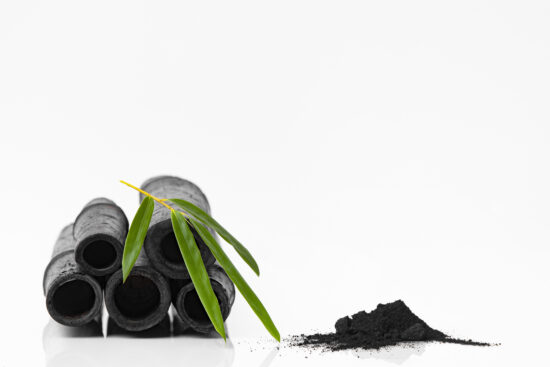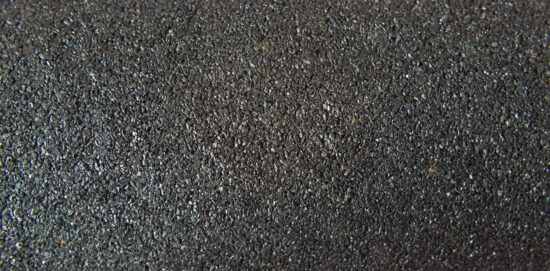Are you looking for a way to get clean, great-tasting water in your home? Carbon water filters are an excellent way to do that, but how long do they last? In this blog post, we’ll discuss how long carbon water filters typically last and how you can extend your life of yours. Read on!
Table Of Contents
−- How long does a sediment pre-filter last?
- How long does an activated carbon filter last?
- How long do activated carbon pitcher filters last?
- Factors affecting the lifespan of a carbon filter
- Different types of carbon filters
- What factors can affect the lifespan of a carbon filter?
- When should you change your carbon filter?
- What are the benefits of changing carbon water filters regularly?
- What are some common signs that your carbon filter needs to be replaced?
- Signs that it’s time to replace your carbon filter
- Conclusion
How long does a sediment pre-filter last?
A sediment pre-filter is an important part of a water filtration system and should be changed regularly to ensure optimal performance. The average lifespan of a sediment pre-filter is 6-9 months, although this may vary depending on the type of water and level of usage.

To ensure you get the most out of your water filter system, it is best to replace the sediment pre-filter every three months. This will help to ensure that your filter can effectively remove harmful particles from the water while also extending the life of the other components in the system, such as the granular carbon-based or sub-micron post filter.
By regularly changing your sediment pre-filter, you can be sure your filter will continue providing you with clean and safe drinking water for many years.
How long does an activated carbon filter last?
An activated carbon filter typically has an average lifespan of 4-6 months. However, factors such as the quality of the filter, the type of water being filtered, and the rate of use can affect this duration. It is important to regularly check and replace your carbon filters to ensure their efficiency and effectiveness.
This is especially beneficial for pitcher filters which usually have a shorter lifespan than other carbon filters. By changing your carbon filter regularly, you can benefit from better-tasting water and improved water filtration.
How long do activated carbon pitcher filters last?
Activated carbon pitcher filters, like the popular Brita filtering pitchers, are a convenient way to purify your drinking water at home. These filters typically last up to six months when used once or twice a day. This is often much longer than the lifespan of a sediment pre-filter.
An activated carbon filter’s actual life depends on the amounts of contaminants it filters, the volume of the filtered water it is used for, and other factors, such as the quality of the filter itself. It is important to regularly change your activated carbon pitcher filter to ensure you are drinking clean, safe water.
Factors affecting the lifespan of a carbon filter
The lifespan of a carbon filter is heavily dependent on various factors such as usage frequency, type of water being filtered, filter size, and filter material quality. Depending on the quality of water being filtered, the frequency with which the filter is used, and how well it is maintained, a carbon filter can last anywhere from two to six months.
Additionally, larger filters tend to last longer than smaller ones, as do filters made from higher-quality materials. To ensure the best performance from your carbon filter, it is important to keep an eye out for signs that it’s time to replace it, such as discoloration of the water, foul odors or tastes, or decreased filtration capacity.
Different types of carbon filters
When it comes to carbon water filters, there are a few different types available.
- Granular Activated Carbon (GAC) filters are often used as pre-filters to reduce chlorine, sediment, and bad tastes and odors.
- KDF filters contain an alloy that uses a chemical process to remove heavy metals, chloramines, and bacteria from water.
- Activated Carbon Block (ACB) filters provide an even higher level of filtration than GAC and KDF filters, as they can remove a wide range of contaminants such as volatile organic compounds (VOCs), pesticides, herbicides, and pharmaceuticals.
The lifespan of each type of filter varies, depending on factors like frequency of use, the type and quality of water being filtered, filter size, and filter material quality. It’s important to watch for signs that it’s time for a replacement, such as discolored water, foul odor or taste, or decreased filtration capacity.
Granular Activated Carbon (GAC) filters
Granular Activated Carbon (GAC) filters are popular for filtering water. They are composed of small carbon particles that can sift contaminants from the water, such as chlorine and other chemical impurities.
Generally, GAC filters should be changed every six to twelve months for optimal performance and effectiveness. The replacement frequency depends on the contaminant levels, water use, filter size, and material quality.
Signs that it is time to replace your GAC filter include discoloration of water, foul odor or taste, and decreased filtration capacity.
KDF Filters
KDF filters are an effective type of carbon filter that uses a combination of activated carbon and an additional filtering material called KDF. KDF filters are known for removing chlorine, bacteria, and other pollutants from water, and they have a longer lifespan than most other carbon filters.
When used properly, KDF filters can last up to one year. However, the lifespan largely depends on the amount of chlorine in the supply water, as chlorine can shorten resin life. Additionally, KDF filters require regular maintenance to ensure their effectiveness. If you are looking for a longer-lasting carbon filter option, KDF filters may be the perfect choice for you.
Activated Carbon Block (ACB)
Activated Carbon Block (ACB) filters are made by grinding activated carbon into a fine powder and pressing it into a block shape. This increases the surface area and makes the filter much more efficient than a regular carbon filter. The ACB filter is good for up to 6 months, depending on the water quality.
ACB filters remove chlorine, sediment, organic compounds, and odors greatly. Remember that you should never leave an ACB filter in your system for longer than one year, as this could make your water worse than it was before treatment.

What factors can affect the lifespan of a carbon filter?
The lifespan of a carbon filter is determined by several factors, including the type of filter, the water quality, and how often it is used. The type of filter can affect how long it lasts, with some filters lasting longer than others. The quality of the water being filtered can also impact the lifespan of a filter, as contaminants can clog the filter and cause it to need to be replaced sooner.
Additionally, how often the filter is used can also affect its lifespan. If a filter is used frequently, it will need to be replaced more often than if used infrequently. It is important to consider all these factors when deciding how long a carbon filter will last before needing to be replaced.
When should you change your carbon filter?
When it comes to water filtration, the lifespan of a carbon filter is an important factor to consider. It is recommended that you change your carbon filter every six months. This ensures that your water is filtered properly and that any unpleasant smells and flavors are removed. This also helps keep your filter in the best condition and prevents it from becoming clogged.
If you use your filter for longer than one year, the chances of it becoming ineffective increase, so it’s best to replace it as soon as possible. Factors such as water hardness and usage can also affect how long your carbon filter will last, so taking these into account can help you determine the best time to replace it.
What are the benefits of changing carbon water filters regularly?
Replacing your carbon water filter regularly is an important task. Not only will it keep your water tasting clean and fresh, but it will also reduce the need for scale-reduction beads.
By changing the filter regularly, you can help ensure that the water you’re drinking is safe and free from contaminants while preventing any sediment buildup or clogging. Additionally, changing the filter regularly can help extend its lifespan and minimize the need for frequent repairs or replacements.
What are some common signs that your carbon filter needs to be replaced?
It is important to keep an eye out for some common signs that your carbon filter needs to be replaced. If you notice a decrease in water pressure, foul odors coming from the water, or it tastes different, it may be time to replace your filter. By regularly replacing your carbon filter, you can ensure that the water in your home remains safe and clean for drinking and other uses.
Signs that it’s time to replace your carbon filter
It’s important to recognize the signs that it’s time to replace your carbon filter.
Discoloration of Water
One of the most common signs that your carbon filter needs to be replaced is water discoloration. This could indicate that the filter has become clogged and can no longer remove contaminants efficiently. If your water is discolored after passing through the filter, it’s likely time for a replacement.
It’s important to note that some carbon filters, such as KDF filters, can cause discoloration as they remove iron and other minerals from the water. However, if the discoloration occurs with no other signs of contamination, it’s likely time to replace the filter.
Foul Odor or Taste
One of the most obvious signs that it’s time to change your carbon water filter is a foul odor or taste from the filtered water. This can be caused by bacteria or organic matter that has built up on the filter over time, making it unable to remove these contaminants effectively.
Additionally, the filter can become clogged with sediment and other impurities, making it less efficient and giving the water an unpleasant smell or taste.
Decreased Filtration Capacity
When using a carbon filter, it’s important to look for signs that it is no longer working properly. One of these signs is a decreased filtration capacity.
If the water that comes through the filter takes longer to pass, or if you notice particles that weren’t filtered out before, this is a sign that the filter has reached its end of life. Additionally, it’s important to note that different carbon filters have different lifespan expectancies, so it’s important to check your product manual for specific instructions on when to replace each filter.
Conclusion
In conclusion, carbon water filters are an effective way to reduce contaminants in your drinking water. Depending on your filter type, they can last from a few days to several years. However, the lifespan of a carbon filter depends on many factors, including water volume, frequency of use, and contaminant levels.
It is important to keep an eye on your filter and replace it when necessary. Regularly replacing your carbon filter will ensure you get the most out of your filtration system and drink safe, clean water.

Jay
Jay is a health and wellness enthusiast with expertise in water quality and nutrition. As a knowledgeable advocate for holistic well-being, Jay successfully manages Type 2 Diabetes through informed lifestyle choices. Committed to sharing reliable and authoritative insights, Jay combines firsthand experience with a passion for enhancing health."
